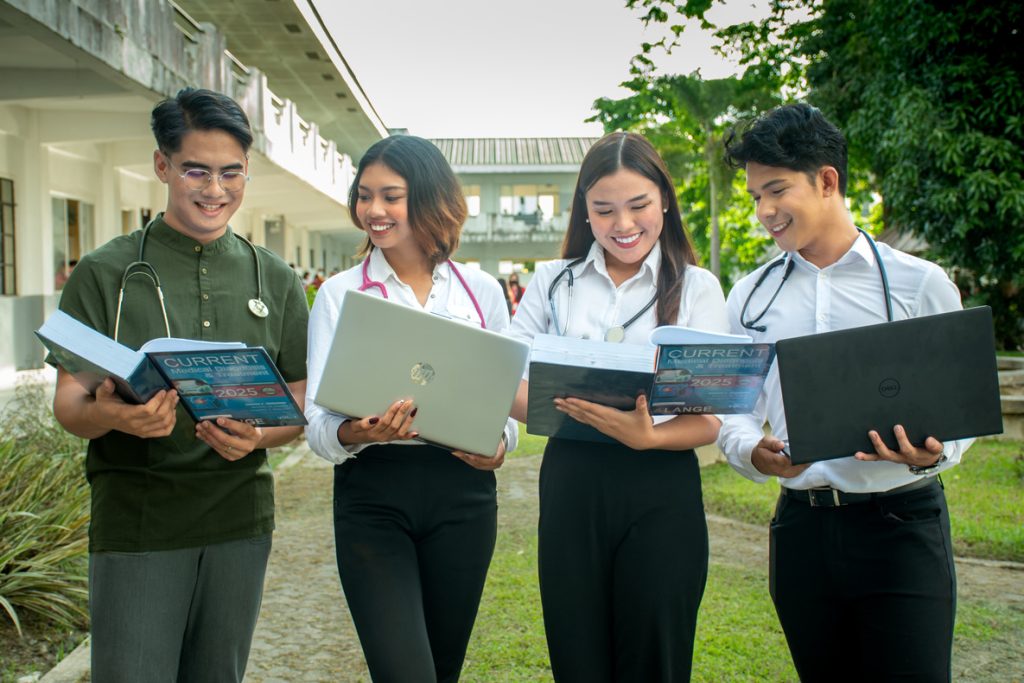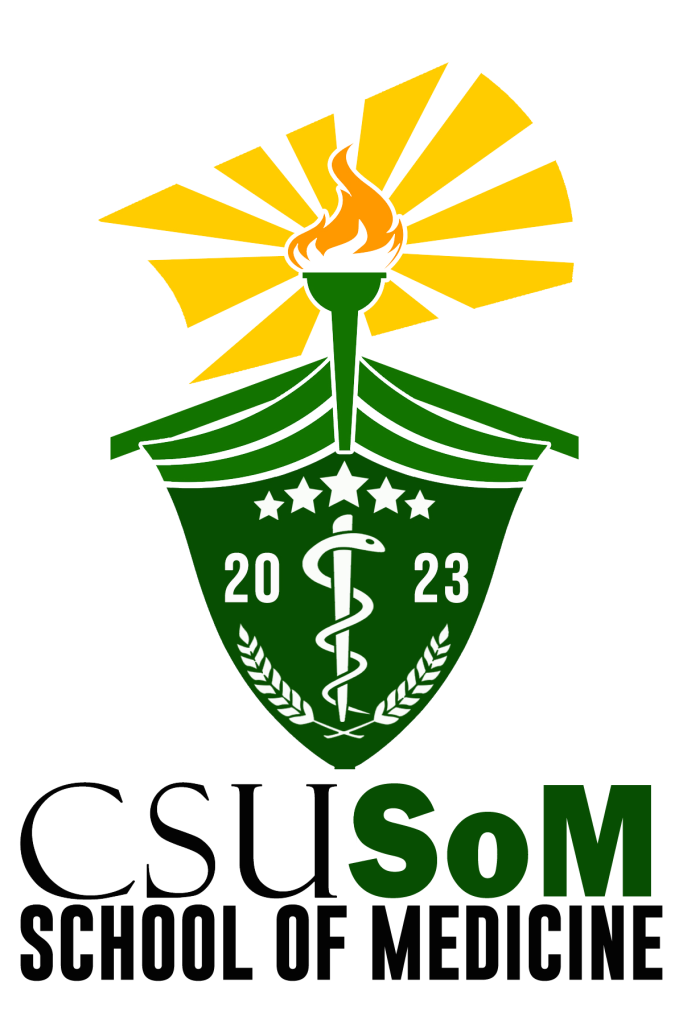THRIVE Caraga
Transforming Health Research and Innovations for a Vibrant and Equitable Caraga
Overview
The University’s inspiring vision is to be a “a socially-engaged digital, innovation, and entrepreneurial university excelling globally in science, engineering, and the arts by 2028.” As a transformative university, its mission is to produce a responsible steward of problem-solvers and value creators driven to create a sustainable future for the region, the nation, and beyond. To achieve these ambitious goals, the University must take bold and radical steps to reorients its research and development, innovation, and extension (RDIE) activities to address the pressing challenges facing the Caraga Region, especially in health and sustainability. In this context, the LIKHA serves as the guiding frameworks, ensuring that the University’s initiatives are not only innovative but also deeply rooted in community relevance and impact. Through LIKHA, CSU is empwered to leverage technology, creativity, and collaboration in addressing both local and global challenges.
However, having inspiring vision and mission statements is not enough; these must be translated into concrete actions and measurable goals. The vision and mission serve as the foundation, spirit, and inspiration for the entire School of Medicine (SOM) and the whole University community. To bring this vision to life, the CSU-SOM must develop strategic plans and specific objectives to guide their progress. To this end, a Futures Thinking-based RDIE Agenda Writeshop was conducted to craft the School’s Research and Development, Innovation, and Extension Agenda, anchored in the LIKHA agenda, which places an emphasis on inclusive growth and forward-thinking approaches.

Living the Brand of Education
The SOM shall be the banner professional school program of the Caraga State University who will uphold the institution’s brand of education – a human-centered, community focused teaching and learning environment.
By 2034, CSU-SOM aims to be the best medical school in the country, producing highly competent and empathic physicians who are not only skilled in clinical practice but also deeply committed to serving the underserved communities in the region through research, innovation, and extension.
The THRIVE Caraga Agenda will guide the School’s research and development, innovation, and extension activities to achieve this aspiration.
The Strategic Goals
A1. Conduct cutting-edge, community-engaged research on the social determinants of health and develop targeted interventions to improve health outcomes and reduce disparities in under-served populations.
A2. Foster authentic, reciprocal partnerships with community stakeholders to co-design and implement programs that empower marginalized groups and build durable pathways to equitable, culturally-responsive care.
A3. Prepare a diverse, socially-conscious healthcare workforce equipped with the knowledge, skills and commitment to advance health justice through inter-professional education and community-based training opportunities.
B1. Leverage digital health technologies and data science to enhance care delivery, improve population health monitoring, and drive discovery in priority research areas.
B2. Cultivate an entrepreneurial ecosystem that accelerates the translation of innovative solutions to critical healthcare challenges.
B3. Establish robust, multi-sector collaborations to secure necessary funding, policy support and infrastructure to scale impactful programs and drive systemic change.
C1. Expand clinical services, health education and outreach programming to under-served communities, with a focus on holistic, integrated approaches that address complex, interrelated health needs.
C2. Empower local leaders and organizations through training, technical assistance and resource-sharing to strengthen community capacity for health promotion and disease prevention.
C3. Advocate for health-supportive policies and equitable allocation of public and private resources to systematically dismantle barriers to well-being.
D1. Implement targeted, evidence-based interventions to address priority public health issues (e.g., substance use, mental health, chronic disease) and mitigate associated risks.
D2. Invest in longtudinal, community-centered research to identify emerging health threats and design proactive, population-level solutions.
D3. Facilitate cross-sector collaborations to advance health-promoting initiatives that address the social determinants of health and build community resilience.
E1. Conduct multidisciplinary research to elucidate the mechanisms, epidemiology, and socio-behavioral factors underlying the emergence, transmission, and impact of novel pathogens.
E2. Develop innovative, context-appropriate strategies and technologies to strengthen pandemic preparedness, rapid response, and resilient recovery at the community level.
E3. Advocate for policies and infrastructure investments that bolster public health emergency management systems and enhance global health security.
Thrive Caraga RDIE Agenda
Community - Engaged Health Research
The school will conduct collaborative, community-partnered research to address presing health needs and priorities of diverse communities. By engaging stakeholders as equal partners, the school aims to develop innovative, context-appropriate solutions that respond to local realities and elevate community voice and leadership. This community-engaged approach will drive research on the complex determinants of population health and inform the design of targeted equitable interventions to improve well-being.
- Health, Systems, Digital Health, and Tele-Medicine
- Emerging and Re-emerging infectious diseases, communicable diseases, and family health
- Public health emergencies, Epidemiology, and Surveilance
Biomedical Innovation
The school will leverage in the University’s strengths in biology, robotics, and automation, artificial intelligence, and electronics engineering to drive innovative solutions in bio medicine and healthcare. By harnessing its diverse expertise and capabilities, the school will accelerate the development of groundbreaking discoveries, novel therapies, and trans-formative healthcare technologies. The collaborative, inter-disciplinary approach will catalyze biomedical breakthroughs addressing pressing health challenges.
- Precision diagnostics and personalized therapeutics and assistive medical devices
- Biologics, regenerative medicine, and tissue engineering
- New drug and vaccine development
Equity-Focused Public Health
The school will focus its research on identifying and addressing the root causes of health inequities in the region. Through collaborative, community-driven efforts, the school will develop solutions to promote greater health equity, gender equality, and social justice.
- Urban-Rural Vulnerabilities and Health Disparities, and Social Determinants
- Health of the Vulnerable Sectors
- Research-based Interprofessional Health Education and Community-based Health Programs
Sustainability and Resilient Health Systems
The school will focus its research on identifying and addressing the root causes of health inequities in the region. Through collaborative, community-driven efforts, the school will develop solutions to promote greater health equity, gender equality, and social justice.
- Climate Change and Health
- Agriculture and Indigenous Health and Wellbeing
- Local Health Policies
The Strategic Approach
Research to Instructional Materials Devt.
Insights from research to be integrated into instructional materials and in the delivery of instructions. By leveraging its knowledge-generation capacity, the University aims to co-create and deploy instructional materials and digital learning modules that are contextual, innovative, and relevant.
Bridging Theory and Practice
The University aims to bridge the gap between research and practice of profession, ensuring a seamless flow of information and ideas, and grounding theoretical insights in real-world applications.
Basic vs Applied Research : Equal Focus
Equal focus and priority for basic research and applied research. This balanced approach ensures that foundational discoveries can be translated into practical solutions, driving both scientific advancement and societal progress.
Multiciplicty of Methods
The University will intensify knowledge management and peer mentoring initiatives to encourage faculty to embrace diverse research methodologies. This will ensure a holistic approach towards research productivity and innovation.


